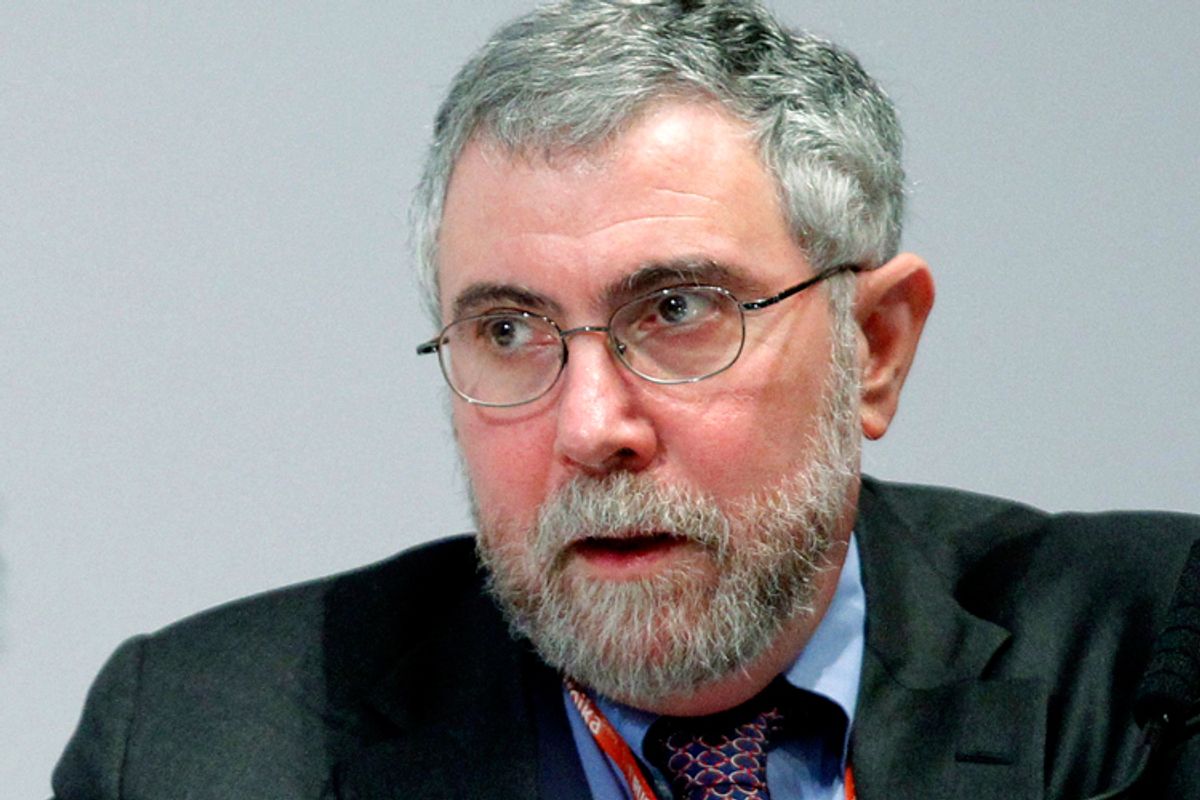In his latest column for the New York Times, celebrated economist and best-selling author Paul Krugman slams former Treasury Secretary Tim Geithner for presenting an exceptionally positive self-assessment in his new memoir, "Stress Test."
While Krugman is happy to grant that Geithner's post-2008 record is better than that of his European Union counterparts, he still thinks the Obama administration's chief financial crisis manager fell well short of expectations.
"Mr. Geithner can indeed blame much though not all of what went wrong on scorched-earth Republican obstructionism," Krugman writes. "But there’s also something else going on."
That "something else," Krugman claims, is a mistaken belief that the interests of the world's most powerful bankers are more or less identical to those of the everyday worker. "In both Europe and America," Krugman laments, "economic policy has to a large extent been governed by the implicit slogan 'Save the bankers, save the world' — that is, restore confidence in the financial system and prosperity will follow."
Geithner did well enough at the first half of that unofficial slogan, Krugman says, but his record on the second half is considerably worse. Citing Geithner's widely reported resistance to enacting significant mortgage debt relief for millions of struggling Americans — whose debt was, in turn, hurting the larger economy — Krugman claims that the former treasury secretary "was ... all for bailing out banks but against bailing out families."
That was a big mistake, Krugman argues, and one that speaks to the larger rot in Western society, the implicit belief that bankers and regular people should be judged by different standards:
“Stress Test” asserts that no conceivable amount of mortgage debt relief could have done much to boost the economy. But the leading experts on this subject are the economists Atif Mian and Amir Sufi, whose just-published book “House of Debt” argues very much the contrary. On their blog, Mr. Mian and Mr. Sufi point out that Mr. Geithner’s arithmetic on the issue seems weirdly wrong — order of magnitude wrong — giving much less weight to the role of debt in holding back spending than the consensus of economic research. And that doesn’t even take into account the further benefits that would have flowed from a sharp reduction in foreclosures.
In the end, the story of economic policy since 2008 has been that of a remarkable double standard. Bad loans always involve mistakes on both sides — if borrowers were irresponsible, so were the people who lent them money. But when crisis came, bankers were held harmless for their errors while families paid full price.
And refusing to help families in debt, it turns out, wasn’t just unfair; it was bad economics. Wall Street is back, but America isn’t, and the double standard is the main reason.



Shares